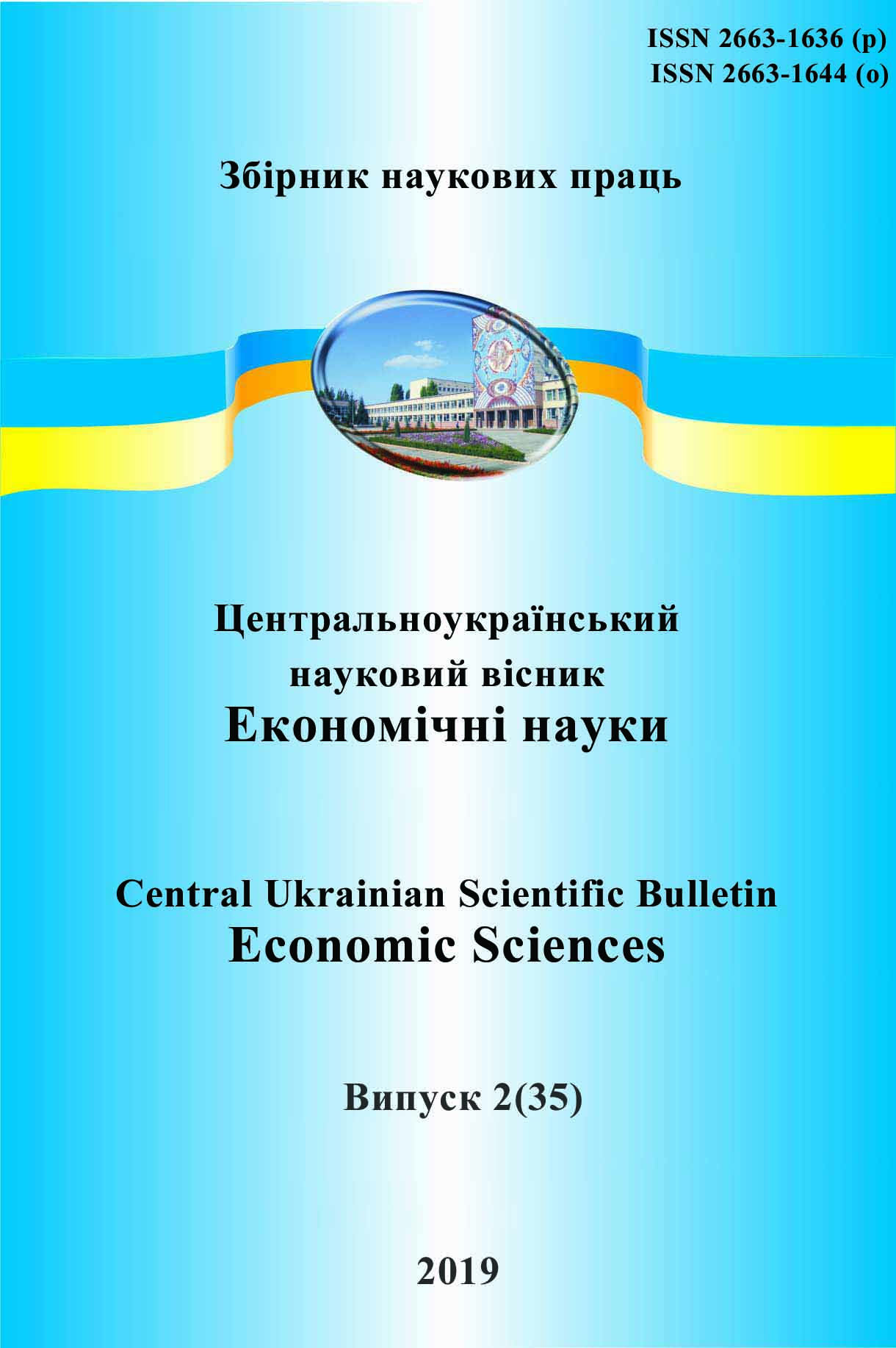Тенденції формування інтелектуального потенціалу в структурі глобальної економіки
Trends in the Formation of Intellectual Potential in the Structure of the Global Economy
Author(s): Iryna Kalenyuk, Oleg KuklinSubject(s): Economy, National Economy, Supranational / Global Economy, Human Resources in Economy, Socio-Economic Research
Published by: Центральноукраїнський національний технічний університет
Keywords: intellectualization; globalization; higher education; intellectual capital; ratings;
Summary/Abstract: It is substantiated that the competitive advantages of the countries and its subjects in modern conditions are provided not only by the capacity of the basic branches of economy, but by the quality of human resources. Global trends in the development of education in the modern world are manifested in the growing size of the education sector, the expansion of coverage of the population of higher education, increasing the educational period in a person's life (expected length of education), the realization of the concept of lifelong education, diversification of forms of organization and financing of educational activities. It is substantiated that the formation of intellectual potential in the process of globalization is a decisive factor in improving the competitiveness of national economies and the development of the global market at the present stage. The purpose of the article is to identify the key factors for the formation of intellectual potential in the structure of the global economy and to characterize key trends. The key factors that determine its development are highlighted, in particular, the number of students in higher education institutions, the level and status of higher education and science funding (both in general and per student), rating opportunities and results in global rankings and indices. The basic tendencies of change of these indicators are investigated. Priorities of formation of the intellectual potential of the state and opportunities for its development are determined. It is proved that in the current conditions it is important to improve the economic mechanism of functioning of the higher education system: the search for the optimal model of public funding aimed at ensuring the quality of education and overcoming differences in access to quality education. This requires a clear understanding of the desired results, goals and mechanisms for achieving them. A pressing issue for modern educational practice is the further elaboration of funding mechanisms based on performance, the development of simple, clear and clear goals that can be identified and defined as outcomes and benchmarks for funding educational institutions. The necessity of the state position to preserve and support our intellectual elite, accumulated over many years of educational potential, is substantiated. The experience of the advanced countries of the world shows that the creation of a cohort of powerful research universities can be an effective factor in the development of higher education and increase the country's competitiveness. Thus, the main factors of intellectualization can determine the competitiveness of the national economy, and the formation of intellectual potential in the education system is a necessary prerequisite for its growth.
Journal: Центральноукраїнський науковий вісник. Економічні науки
- Issue Year: 2019
- Issue No: 2 (35)
- Page Range: 20-32
- Page Count: 13
- Language: Ukrainian

